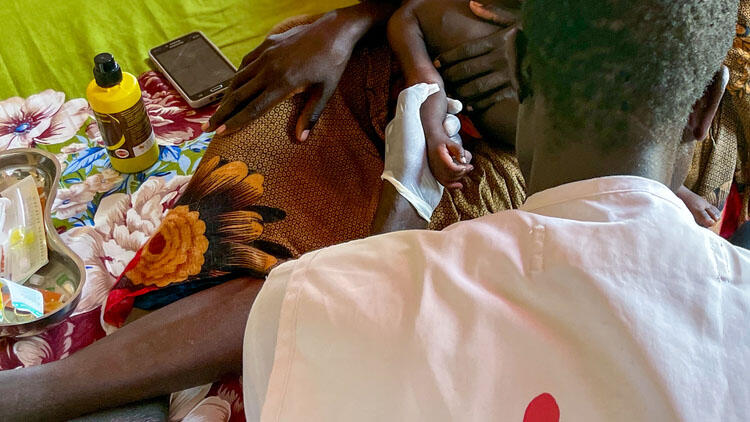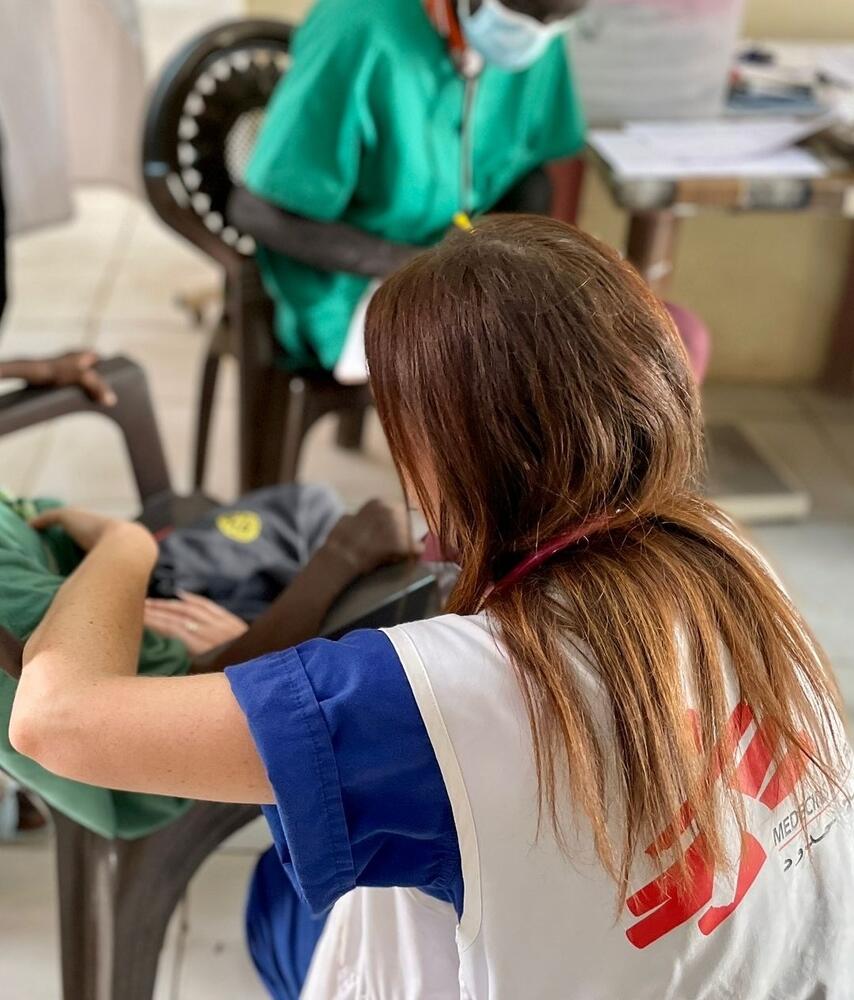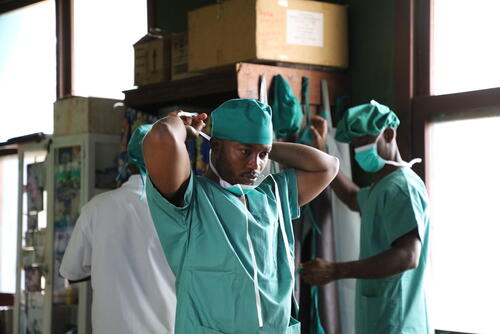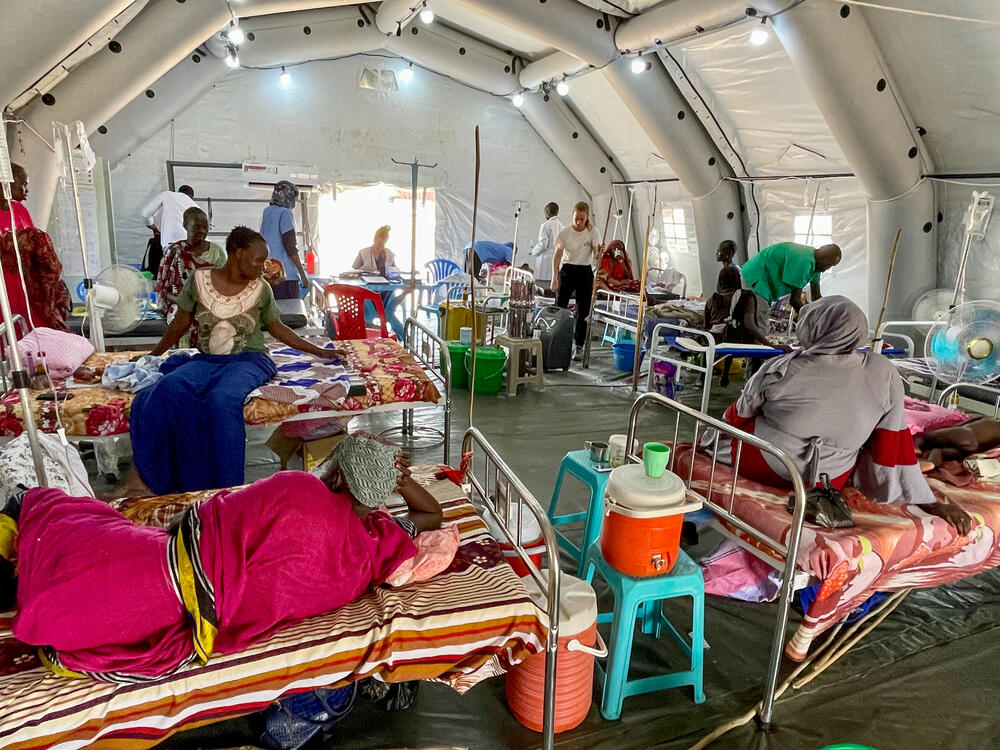South Sudan: The ‘miracle baby’ of Renk
Dr Cathy Branthwaite worked at the paediatric department at Renk Civil Hospital during an extreme heatwave. She describes the day a very sick four-day-old baby arrived.
The situation in Renk
Since the start of the war in Sudan in April 2023, the town of Renk in South Sudan has received an influx of refugees and returnees fleeing the conflict. This dramatically increased the demands on the existing healthcare system, which was already stretched due to economic instability and previous conflict.
In March 2024, Renk experienced an extreme heatwave, with temperatures soaring above 45 degrees. Schools went into lockdown and more people died from heat-related illness.
Among children, there was a surge in severe dehydration, increased infections due to lack of access to safe drinking water, and premature and low birth weight babies struggling to survive.
The Médecins Sans Frontières / Doctors Without Borders (MSF) team at the hospital had erected a tent to accommodate the high numbers of critical patients, but temperatures within the tent became unbearable, reaching over 50 degrees. The logistics staff had to work against the clock to erect a larger, cooler tent in which to transfer the unwell children.
Vital machines including electricity generators and oxygen delivery systems broke down due to overheating, resulting in multiple daily resuscitations.
"Running to the tent to meet the patient, the clinical team could see that he was peri-arrest; barely breathing with a dangerously low heart rate, fever over 40 degrees, unconscious and seizing."
The first 48 hours
A few days into the heatwave a woman with a four-day-old baby boy arrived the hospital. The first time I saw him was when the triage nurse ran towards the tent with the baby in his arms. He was critically unwell with fever, vomiting and seizures.
Running to the tent to meet the patient, the clinical team could see that he was peri-arrest; barely breathing with a dangerously low heart rate, fever over 40 degrees, unconscious and seizing. We needed to resuscitate him with bag valve mask ventilation, intravenous fluid, antibiotics and antiepileptic medication.
After a prolonged resuscitation, with the baby’s life hanging in the balance, we were finally able to stabilise him. However, his condition remained critical because his fever remained high, he continued to need oxygen, and he continued to have seizures (status epileptics) despite second line antiepileptics.
The first 48 hours of admission were crucial; battling to control his fevers and seizures, we monitored him carefully and kept him hydrated with intravenous fluids.
One tough baby
After 48 hours, the baby gradually started to improve and by the fifth day he was stable enough for us to perform a lumbar puncture, to gain samples of spinal fluid. This could then be flown to neighbouring countries for microbiological analysis (Renk has minimal laboratory capabilities with no microbiological analysis available).
Day by day, he improved and grew stronger. He required a three-week course of intravenous antibiotics, and by the end of the admission he had not only recovered from the meningitis, but he was also breastfeeding well, gaining weight, and smiling! He was one tough baby.
As he had been so unwell on arrival and so young at only four days old, he was at higher risk for long-term complications such as developmental delay and ongoing seizures, however upon discharge there was no evidence of neurological damage.
Good news and reviews
On the day of the baby’s discharge from the hospital we held a meeting to review the meningitis cases we had just seen in this recent outbreak, and identify learning opportunities to improve our future practice.
Attending the meeting was the triage nurse who had carried the baby to the tent on arrival. We told him that the baby had survived and was being discharged that day – he hadn’t realised! He really was our little miracle baby.
MSF and the crisis in Sudan
On Saturday 15 April 2023, intense fighting broke out across Sudan, forcing hundreds of thousands of people over the border to South Sudan. More than a year later, life for refugees and host communities remains dire.
People in transit camps have limited food, water, shelter, sanitation facilities, and medical care; malnutrition is rife.
Médecins Sans Frontières / Doctors Without Borders (MSF) supports the local medical teams to provide a high level of care and medical supplies that is crucial for assisting a population that is in dire need of humanitarian assistance.





